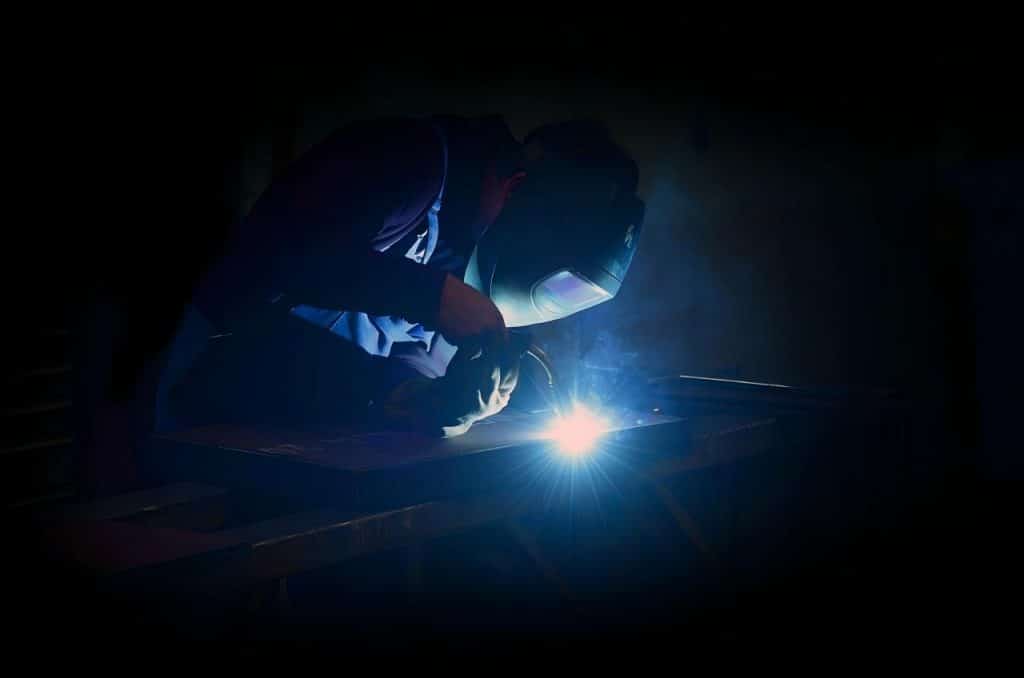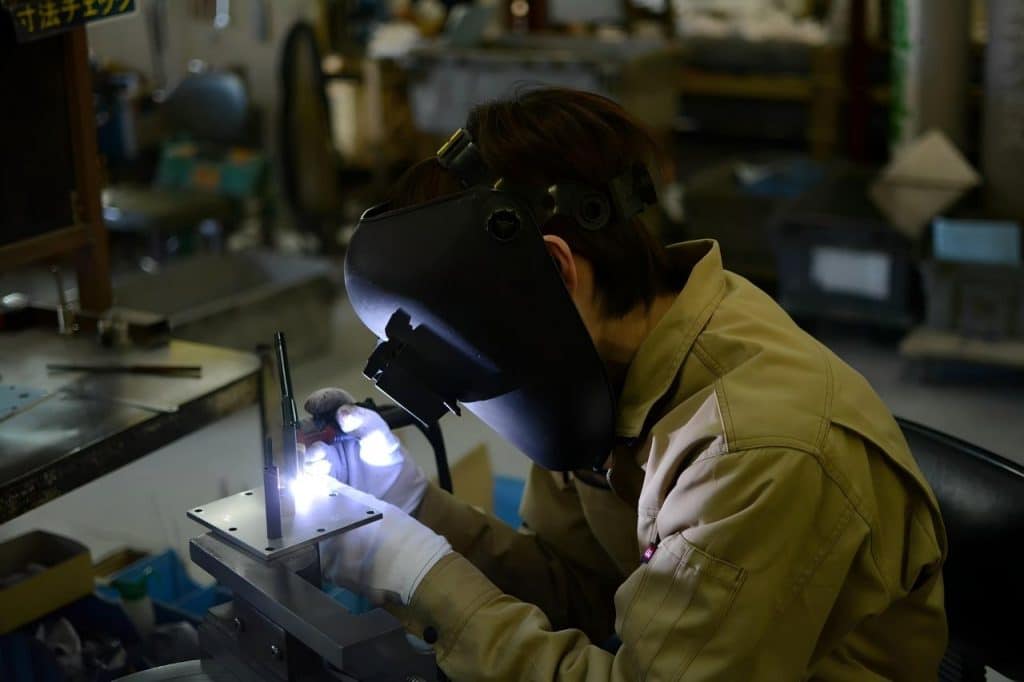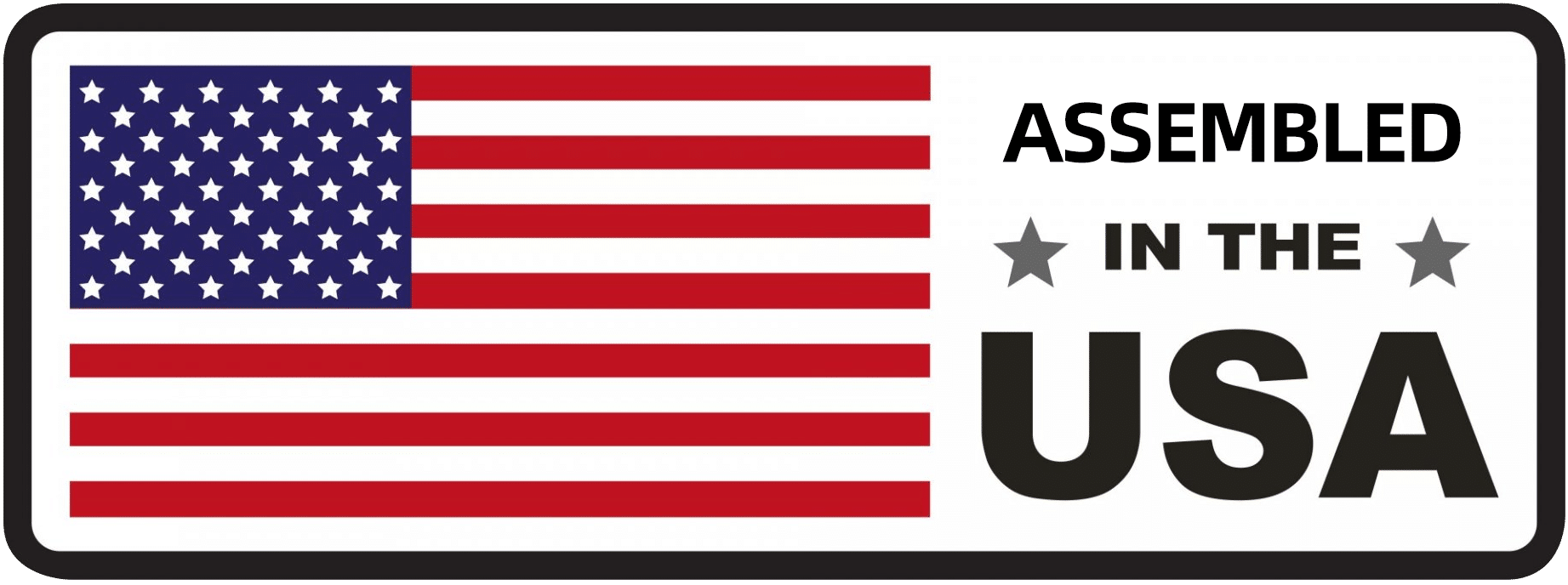
Many industries rely on two prominent welding techniques to fuse metals – Resistance Spot Welding (RSW) and Laser Welding. Both methods are applied extensively in metal fabrication, automotive parts assembly, electronic manufacturing, and medical equipment production.
Yet, RSW and laser welding are distinct methods with their upsides and challenges. Manufacturers must understand the respective potentials and limits of these techniques to identify which one fits their production needs.
In this article, we compare RSW and laser welding to help you pick the right welding technique for your projects.
What Is RSW Welding?
Resistance Spot Welding (RSW), also referred to as “Spot Welding”, joins two or more metal workpieces by application of heat and pressure from an electric current to the weld area.
In RSW, the welding current concentrates on a specific spot to clamp the metal sheets (or workpieces). To concentrate the current, RSW uses two truncated cone-shaped copper alloy electrodes. The pressure from the electrodes keeps the metal sheets together. Eventually, the current applied to the spot is increased to melt the metals and form a weld.
Many industries opt for RSW welding because it is simple and cost-effective. Moreover, RSW welded joints are usually of good quality because of its high clamping pressure that ensures minimal material distortion during the cooling process. RSW can work as well with minimal shielding gas application.
However, RSW has several downsides. For instance, the initial cost of acquiring RSW equipment is quite high (entry-level models start at $2500). A proficient operator is also necessary to perform this method correctly. If you are a beginner, the training might take days or weeks. RSW is also quite ineffective on thicker metals (>6 mm thickness). It is also incompatible with butt joints, which makes it unsuitable in several applications.
What Is Laser Welding?
Laser welding uses a highly concentrated and high-temperature laser beam to melt and fuse the metal workpieces.
This method can be performed using continuous laser beam (constant and uninterrupted laser beam for deep penetration) or pulsed laser beam (short and high-intensity laser pulses for precise heat and energy control). Both types are known for their ultra-precise laser application which results in a minimized heat-affected zone (HAZ) that prevents material distortion.
Laser welding is considerably the most precise welding technique nowadays. So, it is highly demanded in applications that require robust, reliable, and sterile welds, such as in the aerospace, automotive, and medical/surgical devices.
Aside from its top-level precision, laser welding also excels in deep fusion, even on thicker materials (>6 mm). It is also more flexible than RSW as it supports not only metals, but also thermoplastics, glasses, and ceramics.
Laser welding machines are also significantly faster, more efficient, and easier to use. For instance, the DenaliWeld CR Series is an advanced laser welding solution that supports up to 3000W of continuous laser output. This enables the machine to consistently generate high-powered beams with impressive precision for high-volume production.
The machine also comes with pre-set parameters and one-click operation for faster and safer setup. Moreover, you do not need to be a skilled operator to use this machine. It is equipped with cobotor robotic welding features for automated laser welding.
RSW Welding Vs. Laser Welding: A Direct Comparison
Presented below is a comparison table to help you ascertain which welding method is better for your needs.
Aspect | RSW Welding | Laser Welding |
Heat Source | Electrical resistance from the electrodes | High-powered continuous or pulsed laser beam |
Material Thickness | Very limited penetration (maximum of 5-6 mm) | Supports deep penetration and fusion (>6 mm) |
Precision | Moderate; the heat-affected zone can be wider because of limited control | High; heat-affected zone is at a minimum because the laser is precisely set up according tothe desired weld size and depth. |
Speed | Fast; Can weld metals in a few seconds (except when dealing with thick metals) | Fast; Can weld metals in a few seconds, even with thicker metals. |
Cost | High initial cost, but generally cheaper than laser welding | High initial cost, but drives down operating cost in the long run because of the lesser need for post-welding clean up. |
Applications | Recommended for simpler applications, but also works on high-volume production | Recommended for precise and complex applications as well as high-volume production |
Setup Complexity | Requires weld-thru primer | Usually requires no setup |
Advantages and Disadvantages of RSW and Laser Welding
To pick which welding method works well for your welding project, it is important to recognize their respective strengths and weaknesses. Here is a rundown of the pros and cons of the two welding methods.
RSW: Advantages
- Easy to set up and implement.
- Efficient heat generation and pressure application (especially on thin metals)
- Relatively cheaper. Although the initial equipment cost seems expensive, the cost is still significantly cheaper than advanced welding machines.
- Fast welding cycle times. This makes RSW suitable for high-volume operations.
RSW: Disadvantages
- Prone to thermal distortion because of a relatively wider HAZ than laser welding.
- Lacks flexibility. Works poorly on certain joint types and materials.
- Requires surface preparation before performing. In aggregate, this can consume significant time and resources.
- Constrained to thin materials as it penetrates thick materials poorly.
Laser Welding: Advantages:
- High-level precision that ensures a minimized HAZ and prevents material distortion.
- High-speed penetration. This makes laser welding suitable for time-demanding welding projects regardless of output volume.
- High flexibility. Works well with various metals, plastics, and other materials.
- Environmentally friendly. Laser welding generates fewer by-product,s such as smoke and air contaminants.
- Performs well on thick materials because of its high-intensity laser beam.
- Supports fusion of complex metal geometries even in hard-to-reach areas.
Laser Welding: Disadvantages
- High initial equipment cost.
- Regular recalibration of the machine’s parameters might be necessary for consistent performance.
- Requires accurate heat application. Excessive heat can crack the workpiece’s surface.
Choosing Between RSW and Laser Welding

The decision whether to opt for RSW or laser welding boils down to several factors. In this section, we laid out some important considerations before you make the decision.
Material Type and Thickness: Laser welding offers better versatility as it works across varying metal thickness and material types. While RSW works reliably on thin materials, it can be ineffective on thicker metals.
Production Volume: Both methods can support high-volume production lines. But if the products are quite complex, laser welding is more preferable.
Required Precision: Laser welding is more precise than RSW welding, which makes it the better choice when ensuring structural integrity, especially on specialized applications (e.g., complex and intricate electronic parts, flawless medical equipment).
Budget and Available Equipment: Generally, the initial cost for an RSW machine is significantly cheaper than a laser welding machine (or even a handheld laser welder). So, it is the ideal choice for firms that are on a tight budget. However, for medium to large manufacturers seeking a more cost-effective welding solution in the long run, laser welding can be a better investment.
Select the Optimal Welding Method For Your Business Needs
RSW and laser welding are distinct welding techniques with their own upsides and downsides. Put simply, RSW is a relatively low-cost welding approach that is highly efficient for simple yet high-volume welding projects. Meanwhile, laser welding is an ultra-precise, flexible, and speedy technique that ensures the utmost weld quality for intricate and complex welding applications.
Between the two, laser welding appears to be a promising choice for firms seeking optimal ROI through high-quality welds with minimal material distortion. Yet, RSW can be a great option for certain applications.
For top-notch laser welding solutions, visit Denaliweld and check out our wide selection of innovative laser welding machines. We are a renowned laser welding brand offering CE/SGS/WPQR-certified laser welding machines that are high-powered, efficient, safe, and automation-ready.



